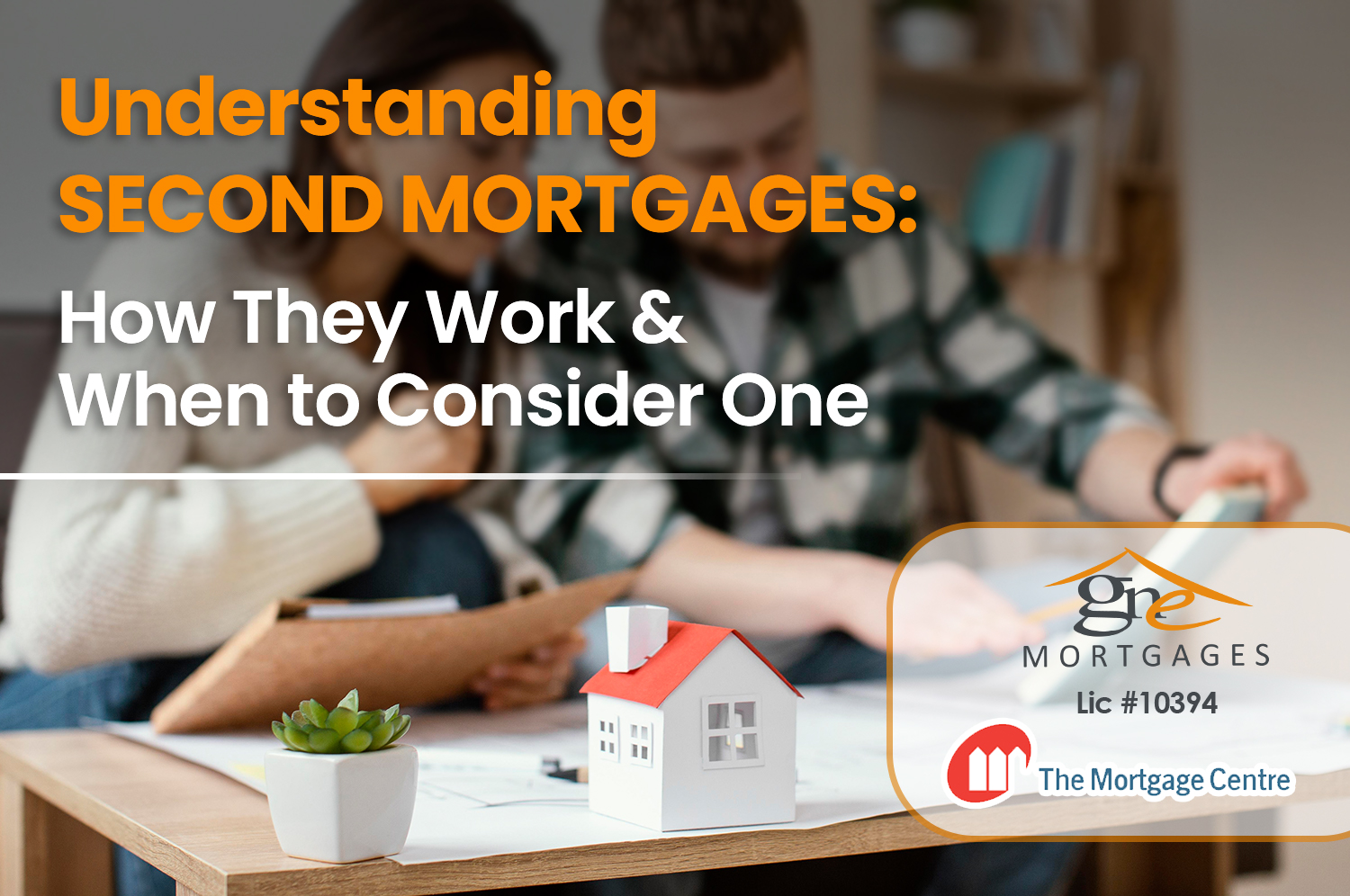Understanding Second Mortgages: How They Work and When to Consider One
A second mortgage can be a valuable tool for homeowners who want more money without selling their homes. By leveraging the equity you have accrued in your house, you can give yourself the financial freedom to satisfy various objectives, such as debt consolidation or home improvements. But it is crucial to know how second mortgages operate, your options, and when getting one makes sense for your financial circumstances.
What Is a Second Mortgage?
The equity in your property, or the amount of its value that you own wholly, can be used as collateral for a second mortgage. The current market value of your house, less the amount still owed on your principal mortgage, is your equity. Your second mortgage will only be paid back after your primary mortgage lender if the house is sold or goes into foreclosure because it is “second” in priority to your original mortgage.
Second mortgages are sometimes less expensive than alternative financing options like credit cards or personal loans. Still, because they carry more risk for the lender, they usually have higher interest rates than primary mortgages. Instead of refinancing their principal mortgage, homeowners often use second mortgages to obtain substantial money.
Types of Second Mortgages
Home equity loans and home equity lines of credit (HELOCs) are the two main categories of second mortgages.
- Home Equity Loan: You get this loan in one lump sum upfront. Your home’s equity determines the loan amount, usually with a fixed interest rate and a predetermined payback timeline. This is the best option if you want regular monthly payments and know exactly how much you need.
- Home Equity Line of Credit (HELOC): A HELOC functions similarly to a credit card. A revolving line of credit based on your home equity is available. It is a versatile solution for expenses that may change over time because you can withdraw money as needed up to a predefined limit. Variable interest rates are a common feature of HELOCs, meaning your interest payment may change over time.
How Does a Second Mortgage Work?
When you get a second mortgage, you get money based on a portion of the equity in your house, typically between 80 and 85 percent when paired with your first mortgage. To ascertain your eligibility and the loan amount you are eligible for, the second mortgage lender considers your credit score, debt-to-income ratio, and house valuation. Your home serves as security for the second mortgage; thus, defaulting on payments could result in the foreclosure of your property.
Example: If your home is valued at $400,000 and you still owe $250,000 on your primary mortgage, you have $150,000 in equity. Depending on your lender’s terms, you may be eligible for a second mortgage up to a certain percentage of that equity.
Pros of a Second Mortgage
- Access to Large Funds: Second mortgages give you access to large sums of money, enabling you to pay for essential expenses.
- Lower Interest Rates: A second mortgage typically has cheaper interest rates than credit cards and personal loans, ultimately saving you money.
- Tax Benefits: Tax deductions may occasionally be available for interest paid on a second mortgage for home renovations. To find out how this applies to your circumstances, always get advice from a tax adviser.
- Flexible Financing Options: Second mortgages give you flexibility depending on your requirements and repayment preferences by offering the choice of a home equity loan or HELOC.
Cons of a Second Mortgage
- Risk of Foreclosure: Since your home is used as collateral, falling behind on payments can lead to foreclosure.
- Additional Monthly Payment: A second mortgage means taking on an extra loan payment, which may strain your monthly budget.
- Closing Costs and Fees: Second mortgages frequently have closing costs, appraisal fees, and other fees that can mount up, just like primary mortgages do.
- Variable Interest Rates: Since HELOCs typically have variable rates, if interest rates climb over time, your payments may also be affected.
When to Consider a Second Mortgage
A second mortgage can be an intelligent choice in the following situations:
- Home Improvements: If you plan to enhance your property’s value with renovations or improvements, a second mortgage can provide the necessary funds without disrupting your primary mortgage.
- Debt Consolidation: If you have high-interest debts (e.g., credit card balances), consolidating them with a second mortgage can reduce your monthly interest costs and simplify repayment.
- Educational Expenses: Since student and other personal loans frequently have higher interest rates, using home equity to pay for school can be a wise choice.
- Major Life Events: Some homeowners take out a second mortgage to cover significant expenses like unforeseen medical bills or other financial necessities. Nonetheless, a repayment plan is necessary to protect your house.
- Investment Opportunities: Homeowners occasionally utilize second mortgages to finance real estate or new company endeavours. Weighing the possible return on investment against the cost of borrowing is crucial because this can be dangerous.
Things to Consider Before Applying
- Evaluate Your Financial Health: To determine whether you can afford an extra loan payment, evaluate your income, existing debts, and budget.
- Shop for the Best Rates: Compare the rates, fees, and terms various lenders offer for second mortgages to find the best deal.
- Have a Clear Purpose: A second mortgage is a significant financial commitment. Ensure you have a clear repayment plan and a particular plan for the money.
- Understand the Loan Terms: Second mortgages may come with terms different from your primary mortgage, such as shorter repayment periods or variable interest rates. Make sure you are clear on how these terms impact your monthly obligations.
Conclusion: Is a Second Mortgage Right for You?
A second mortgage may be helpful if you have a clear repayment plan and want access to large sums of money. However, you must proceed cautiously when applying for a second mortgage because it uses your house as collateral. A second mortgage can assist you in reaching significant financial objectives, such as debt reduction, home upgrades, or educational costs, if handled sensibly.
Consult a financial expert to determine whether a second mortgage fits your long-term economic plan. You may make an informed choice supporting your present requirements and future stability by being aware of the benefits, drawbacks, and timing of a second mortgage.
Explore our resources and contact us for personalized advice on second mortgages and other financing options.













